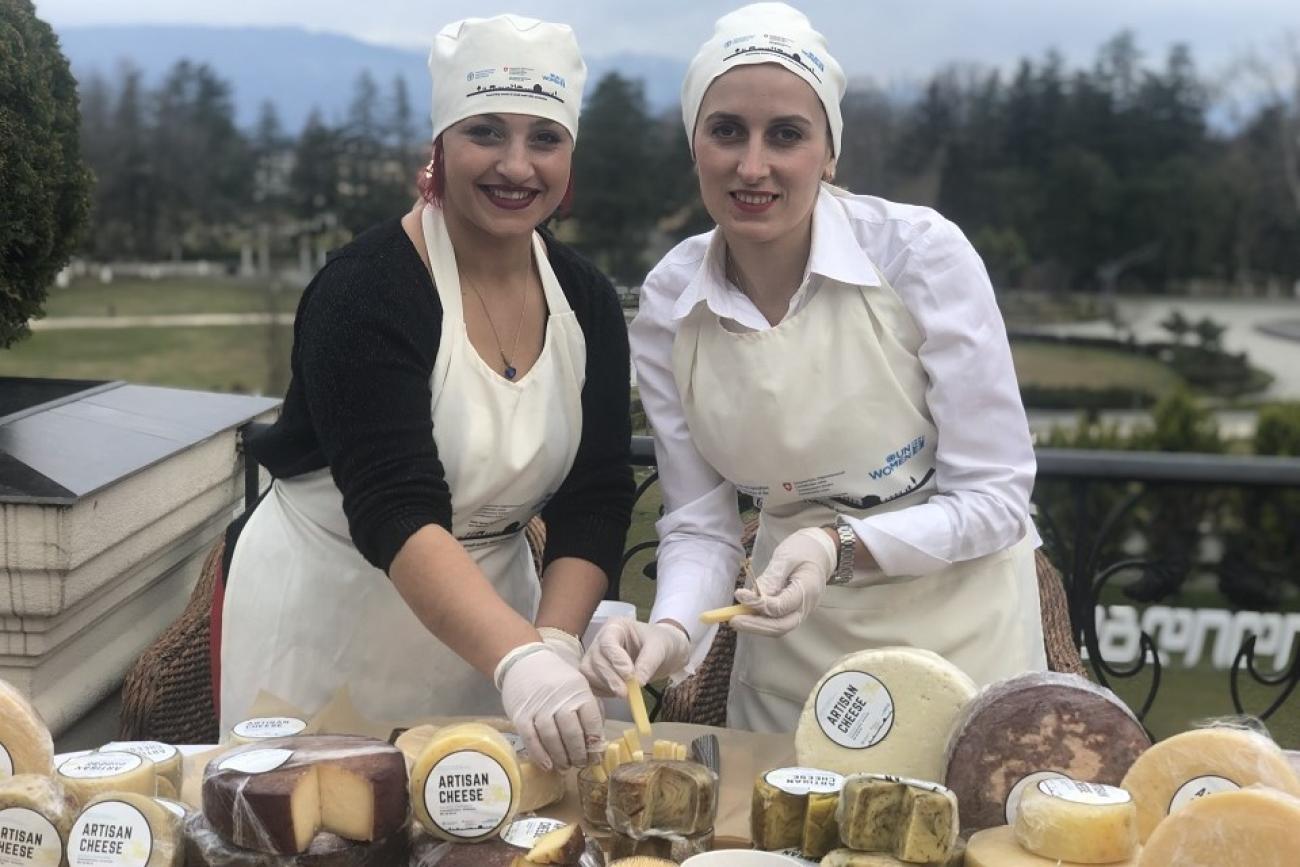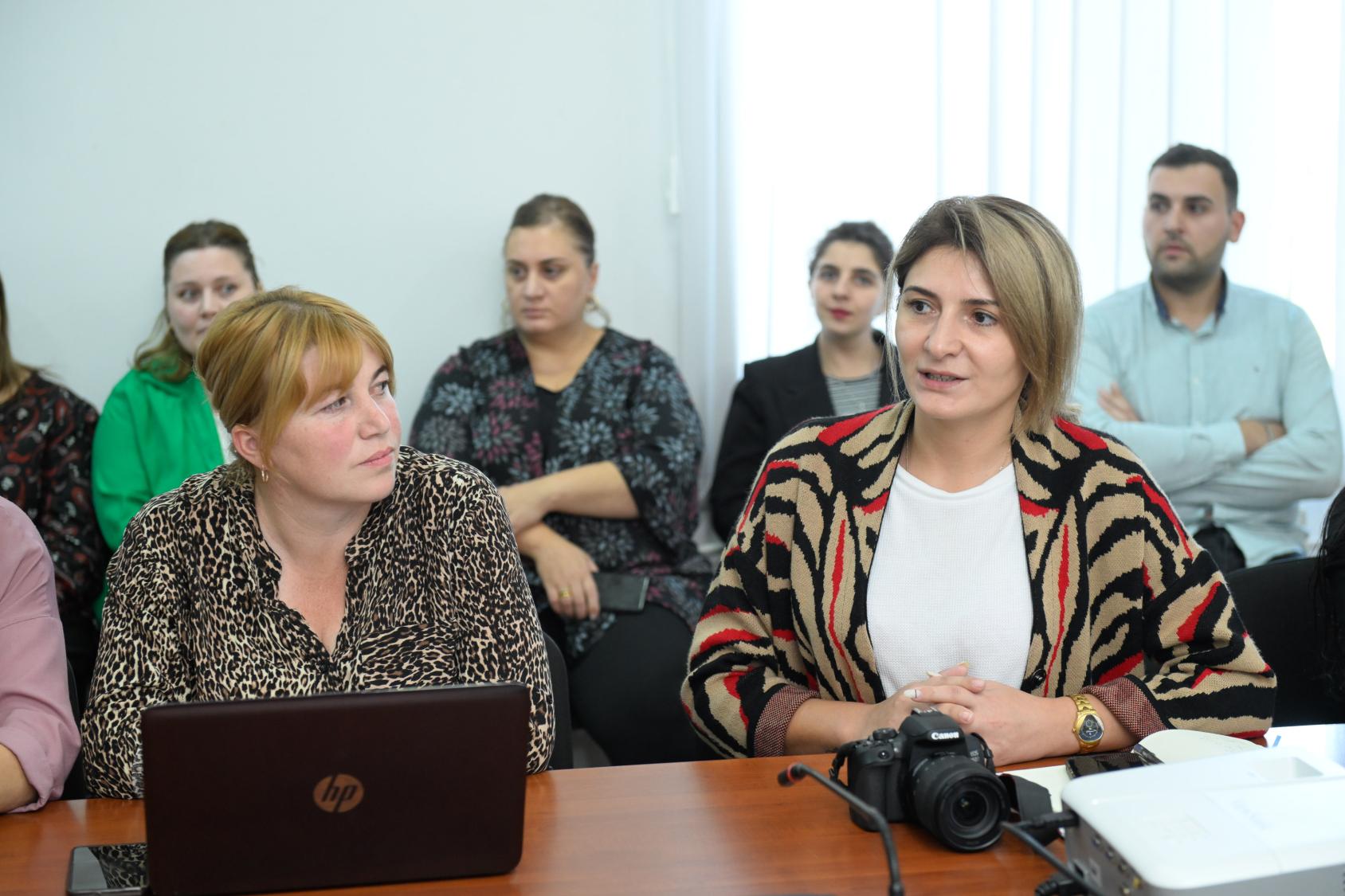Gender Gaps to Gains: UN efforts for Georgia's Girls and Women

Across the globe, the fight for gender equality continues amidst great resistance. Deep-rooted inequalities and harmful social norms limit the potential of girls and women, hindering progress for entire societies. The road to full equality is daunting – estimates suggest it will take a staggering 286 years before women have equal legal rights and protection worldwide.
Georgia faces its own challenges in this global fight. A recent Time Use Survey reveals a stark reality: Georgian women dedicate five times more hours to unpaid domestic and care work compared to men. This disproportionate burden limits their opportunities for economic advancement. The gender pay gap further compounds the challenge, with women earning a staggering 24.6 per cent less than men for the same work. This translates into fewer opportunities for women to access financial resources, build businesses, and secure leadership roles. Achieving inclusive sustainable development in Georgia depends on addressing these inequities.
As the UN Resident Coordinator, together with the Country Team we champion an inclusive approach, partnering with the Georgian government, civil society, and local communities to find solutions that work within the country's unique context. Making sure women and girls have equal opportunities and rights is a key part of all our programmes, outlined in the UN Sustainable Development Cooperation Framework 2021-2025. To ensure we are making progress in these areas, we use a tool called the UNCT-SWAP Gender Equality Scorecard, which helps us track our efforts and stay accountable for creating a more gender-equal Georgia. A 2023 Scorecard shows positive progress on gender equality, most goals are either met or on track, with improvements in areas like the Women, Peace and Security index ranking (moving from 46th to 39th place in 2023).
Over the past four years, under my direction, we have made women's empowerment a top priority across all UN agencies in Georgia. We tackle these complex issues through a two-fold approach: focused programmes for gender equality alongside ensuring women's needs are considered in all aspects of our development work. This emphasis on coordination, ensuring that every UN programme in Georgia considers women's empowerment, has a transformative effect across our work.
By ensuring effective and coherent support, here are three ways the UN has helped national partners make a difference:
Fighting inequality
Harnessing the combined expertise of United Nations Development Programme (UNDP), UN Women and the United Nations Population Fund (UNFPA), a Swedish-funded Joint Programme for Gender Equality drives transformative progress in Georgia by focusing on women's economic and political empowerment, while combating violence and discrimination. The UN's contributions include supporting the development of the 2023 State Concept on Gender Equality, the National Action Plan on Combating Violence against Women and Domestic Violence (2022-2024), and legislative amendments to expand access to shelters for survivors of domestic violence. We have further bolstered efforts to enhance human rights, gender equality, and democracy by supporting women in Parliament and local councils. In preparation for Georgia's 2024 parliamentary elections, UNDP is empowering women politicians and helping political parties develop strategies to attract, engage, and promote women candidates. As chair of the steering committee, I will continue to advocate for policy development, stronger legislative frameworks for political and economic empowerment, preventing and responding to violence against women and girls, and creating monitoring mechanisms for implementation.

Gender-responsive local governance
Supported by UN Women and UNDP, 31 municipalities in Georgia actively engage local women groups in the local budgeting process. Last year, I witnessed first-hand how women's groups participated in the decision-making process to determine how community services and funds are used at a meeting with Marneuli City Hall and the City Assembly. When women are involved in budget planning, resources are allocated more equitably, leading to better outcomes for everyone. From improved healthcare and education to thriving local economies, the benefits ripple throughout the community.
Upskilling women entrepreneurs and farmers
UN entities, in collaboration with development partners, civil society organizations, and local governments, enabled a comprehensive support system for women entrepreneurs and farmers. Through training programmes, access to resources, and mentorship opportunities, this initiative equipped more than 3000 rural women with the skills in different fields and resources they need to navigate the competitive landscape, thrive as business leaders and job creators, and increase local household income. The immense potential of women entrepreneurs has been overlooked for far too long. Unlocking women’s full potential meaningfully contributes to Georgia's economic development.
Women's empowerment is not just a destination, but an ongoing process. As the Resident Coordinator, I am championing this commitment as a truly transformative one. Genuine progress requires everyone working together towards a more equal society, a society where all people can contribute and develop their full potential.
This blog was written by the Resident Coordinator in Georgia Sabine Machl. For more information about the UN's work in Georgia, visit georgia.un.org.













